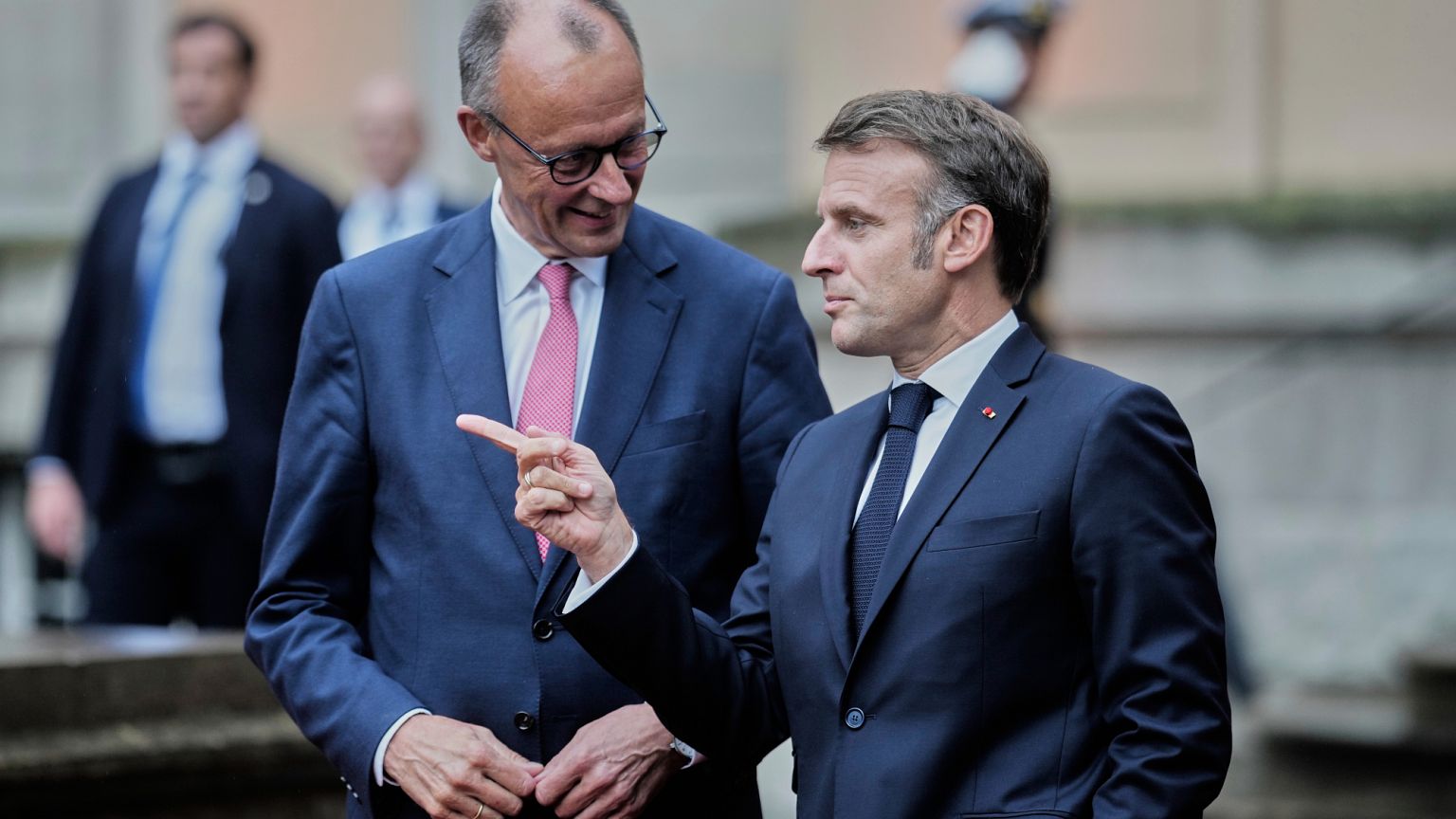Business
France and Germany Edge Closer on Defence Amid Fiscal Disparities

Germany and France are making gradual progress towards a more unified defence strategy, yet significant differences in their financial capabilities and strategic perspectives hinder a comprehensive shift in European Union (EU) defence policies. Both nations now regard Russia as a primary long-term threat and have committed to substantial military investments, but their fiscal realities remain distinct.
According to Jacob F. Kirkegaard, a senior fellow at the Brussels-based Bruegel think tank, “From a longer historical point of view, the degree of convergence between the two countries is arguably higher than it has been for, I would say, decades.” This shift has been catalyzed by recent geopolitical events, including Russia’s ongoing invasion of Ukraine and evolving leadership dynamics in Germany.
Germany’s new Chancellor, Friedrich Merz, has adopted a position akin to that of former French leader Charles de Gaulle, emphasizing the need for Europe to prepare for a potential future without the security assurances of the United States. This sentiment aligns with France’s recent military programming law, dubbed “the ultimate strategic move” by Paris, reflecting a shared urgency in enhancing their military readiness.
Challenges in Joint Defence Initiatives
Despite this strategic alignment, challenges persist. A recent meeting between Emmanuel Macron and Merz highlighted disputes over a joint €100 billion project aimed at developing a sixth-generation fighter jet, known as the Future Combat Air System (FCAS). France’s insistence on securing 80% of the workshare for this initiative has raised tensions, contradicting previous agreements to divide responsibilities equally among France, Germany, and Spain.
Rafael Loss, a policy fellow at the European Council on Foreign Relations (ECFR), noted that France’s demand reflects fundamental differences in how each country perceives its military role. France’s armed forces are tightly integrated with its national foreign policy, as evidenced by recent operations in the Sahel region. This perspective allows France to act unilaterally, prioritizing independent capabilities essential for its nuclear deterrent.
Loss elaborated, stating, “French industry will need to be able to produce this aircraft by themselves if push comes to shove.” While France is willing to cooperate on defence projects, its strategic priorities necessitate a degree of autonomy that differs from Germany’s approach.
Fiscal Differences Impact Defence Spending
The disparity in fiscal conditions poses another significant obstacle to collaboration on defence. As of the first quarter of 2023, Germany’s debt-to-Gross Domestic Product (GDP) ratio stood at 62.3%, while France’s ratio was considerably higher at 114.1%, far exceeding the EU’s recommended limit of 60%. This financial divergence means that Germany is in a better position to enhance its defence spending, while France faces constraints due to its excessive deficit status.
Germany is exploring options to leverage proposals from Brussels that would allow for relaxed fiscal rules concerning defence spending. In contrast, France, already burdened by financial limitations, cannot take advantage of such opportunities. Although France has historically maintained steady defence expenditures, the recent commitments made by the German government, including a €500 billion fund to bolster military capabilities, could enable it to catch up quickly.
Kirkegaard emphasizes that these financial realities place the two nations “on different sides of negotiating tables” within the EU framework. The European Commission has proposed a plan to significantly increase defence spending across member states, aiming for a total investment of €800 billion before 2030. However, the burden of this financing is expected to fall primarily on member states, which, in France’s case, are currently under financial strain.
In light of these challenges, Macron has advocated for joint EU borrowing as a potential solution, a proposal that Germany has firmly rejected. Kirkegaard describes the current geopolitical climate as “a big wasted opportunity” for the EU, noting that the ongoing crisis stemming from Russia’s actions in Ukraine is unlikely to lead to significant institutional or fiscal integration.
The implications of these developments extend beyond mere military collaboration, as they reflect a broader struggle for the EU to present a unified front in the face of emerging security threats. As both Germany and France continue to redefine their defence strategies, the path forward remains fraught with complexities that will require careful navigation and concerted effort from both nations.
-

 Top Stories3 months ago
Top Stories3 months agoTributes Surge for 9-Year-Old Leon Briody After Cancer Battle
-

 Entertainment4 months ago
Entertainment4 months agoAimee Osbourne Joins Family for Emotional Tribute to Ozzy
-

 Politics4 months ago
Politics4 months agoDanny Healy-Rae Considers Complaint After Altercation with Garda
-

 Top Stories4 months ago
Top Stories4 months agoIreland Enjoys Summer Heat as Hurricane Erin Approaches Atlantic
-

 World5 months ago
World5 months agoHawaii Commemorates 80 Years Since Hiroshima Bombing with Ceremony
-

 Top Stories3 months ago
Top Stories3 months agoNewcastle West Woman Patricia Foley Found Safe After Urgent Search
-

 Top Stories5 months ago
Top Stories5 months agoFianna Fáil TDs Urgently Consider Maire Geoghegan-Quinn for Presidency
-

 World5 months ago
World5 months agoCouple Convicted of Murdering Two-Year-Old Grandson in Wales
-

 World5 months ago
World5 months agoGaza Aid Distribution Tragedy: 20 Killed Amid Ongoing Violence
-

 World5 months ago
World5 months agoAristocrat Constance Marten and Partner Convicted of Infant Murder
-

 Top Stories4 months ago
Top Stories4 months agoClimbing Errigal: A Must-Do Summer Adventure in Donegal
-

 Top Stories4 months ago
Top Stories4 months agoHike Donegal’s Errigal Mountain NOW for Unforgettable Summer Views









